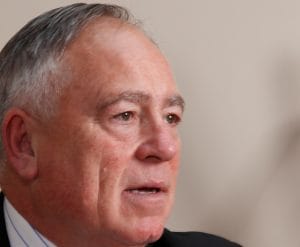An expert witness writes…
Motion Director Richard Bettridge is often engaged as an expert witness in the specialist field of drainage and flooding. He explains the role and its many responsibilities.
 When expert evidence is required in a court of law, expert witnesses are often called upon. They can provide essential support to courts who are dealing with complex and technical matters. The information supplied can be a deciding factor in providing an informed, reliable and carefully considered judgement.
When expert evidence is required in a court of law, expert witnesses are often called upon. They can provide essential support to courts who are dealing with complex and technical matters. The information supplied can be a deciding factor in providing an informed, reliable and carefully considered judgement.
An expert witness has been described as ‘one who has made the subject upon which he speaks a matter of particular study, practice or observation: and (s)he must have a particular and special knowledge of the subject’*.
These days courts expect high quality support. There are an increasingly high number of standards that experts must comply with. In England and Wales, the role of an expert is laid out in the Civil Procedure Rules (CPR) Part 35 and Practice Direction (PD) 35.
In order to be a credible and reliable expert witness, the information provided to the court should be within the individual’s area of expertise. We must not be tempted to stray outside the margins of our expert knowledge. It must be accurate and impartial advice, consistent and based on evidence and facts. The opinions expressed should be our own and not the views of the client or anyone else. We must be competent and qualified to undertake the instructions given.
An expert witness is not a ‘hired gun’. We are not there to defend the client’s position. The primary duty of the expert witness is to the court. Our specialist skill, training, professional knowledge and experience is used to assist the court, which overrides any obligation to the client.
Both parties can agree to use a ‘single joint expert’. This saves the cost of each party having to pay for their own separate expert witness, but each must be in agreement as to which expert is to be instructed. When employed in this way, we are able to cover all aspects of the dispute. This can place us in a strong position to be able to mediate and hopefully bring a positive outcome for both sides.
A similar set of CPR regulations applies to experts appearing at planning inquiries. In addition to flooding and drainage, Motion can provide expert advice on highways, traffic and transport matters.
Going to court can be a costly business and I always recommend taking advice from a legal representative first. If you have any queries relating to drainage or flooding, please contact me on 07860 254766 or email rbettridge@motion.co.uk
* Stroud’s Judicial Dictionary (7th edition) referring to the case of Dole v Johnson, 50 N Hamp 454
An abridged version of this article first appeared in the Winter 2018/19 issue of Insight.

